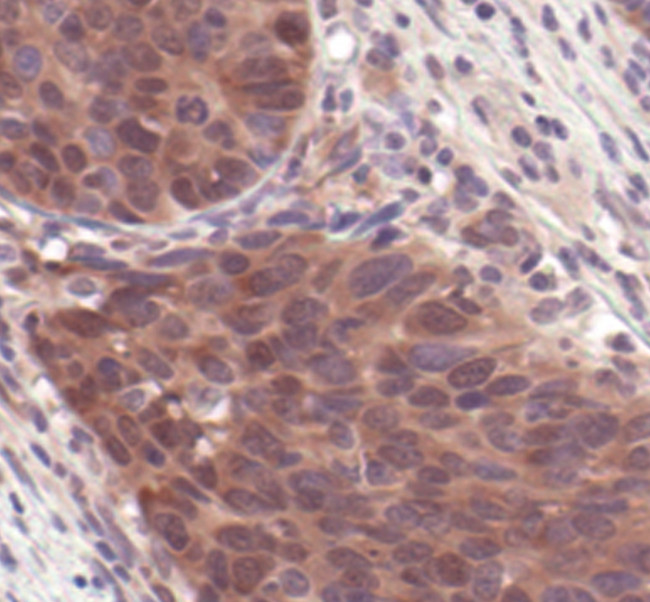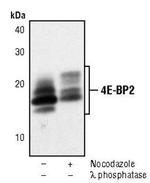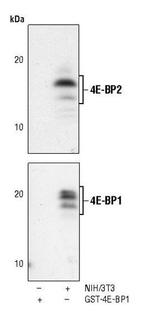Search Thermo Fisher Scientific
Product Details
PA5-17527
Species Reactivity
Host/Isotype
Class
Type
Immunogen
Conjugate
Form
Concentration
Purification
Storage buffer
Contains
Storage conditions
Shipping conditions
RRID
Product Specific Information
It is not recommended to aliquot this antibody.
Target Information
PHAS-II (eIF4E-binding protein II) is involved in translation initiation. PHAS-II is highest in liver and kidney. PHAS proteins bind to eIF-4E, the mRNA cap-binding protein, and inhibit translation of capped mRNA in vitro and in cells. Phosphorylation in the appropriate site(s) promotes dissociation of PHAS/eIF-4E complexes. This allows eIF-4E to bind to eIF-4G (p220), thereby increasing the amount of the eIF-4F complex and the rate of translation initiation. Pharmacological and genetic evidence indicates that the mTOR/p70S6K pathway is involved in the control of PHAS-I and -II. Thus, PHAS proteins may be mediators of the effects of this pathway on protein synthesis and cell proliferation.
For Research Use Only. Not for use in diagnostic procedures. Not for resale without express authorization.
References (0)
Bioinformatics
Protein Aliases: 4E-BP2; eIF4E-binding protein 2; Eukaryotic translation initiation factor 4E-binding protein 2; PHAS-II; Phosphorylated heat- and acid-stable protein regulated by insulin 2; phosphorylated, heat and acid stable regulated by insulin protein II
Gene Aliases: 2810011I19Rik; 4E-BP2; 4EBP2; AA792569; BC010348; EIF4EBP2; PHAS-II; PHASII
UniProt ID: (Human) Q13542, (Mouse) P70445
Entrez Gene ID: (Bovine) 782397, (Human) 1979, (Rat) 361845, (Mouse) 13688

Performance Guarantee
If an Invitrogen™ antibody doesn't perform as described on our website or datasheet,we'll replace the product at no cost to you, or provide you with a credit for a future purchase.*
Learn more
We're here to help
Get expert recommendations for common problems or connect directly with an on staff expert for technical assistance related to applications, equipment and general product use.
Contact tech support



